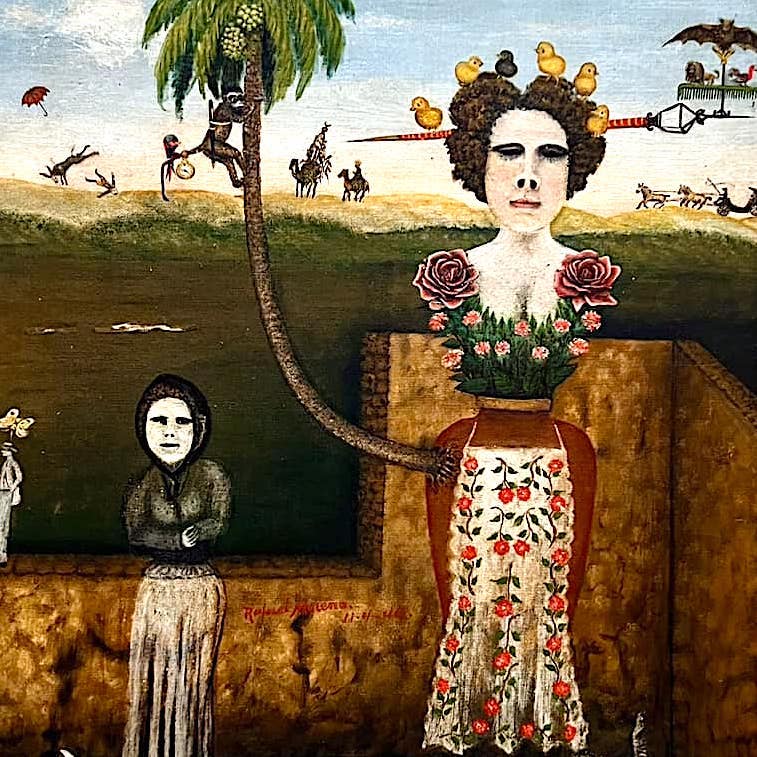
Jane Colden (1724-1766)
I married late.
Before walking down the aisle
at the advanced age of 35,
I mastered plant classification and
made hundreds of specimen drawings.I wrote down all the names,
all the versions of all the names.
My botanical work was not done
when I donned the wedding veil, nor
when I birthed a child.My work was not done.
I was not done.
But I was done for,
and everything ended.
Laura Hecox (1854-1919)
It wasn't a terrifically tall lighthouse,
not like the ones up and down the coast,
but it was my lighthouse, and I
filled it with fossils, shells, bones,
antimony, cinnabar, quartz,
the tiny eggs of violet-green swallows
(Tachycieneta thalassina),
a taxidermied parrot.My job was keeping—
keeping the light on,
keeping the sailors safe,
and collecting, a form
of keeping, but also
a form of sharing.I kept the museum,
kept track of everything,
identified all the specimens,
wrote all the labels,kept myself from loneliness,
kept myself in groceries and home.
Flemmie Pansy Kittrell (1904-1980)
Howard University lured me,
promising a new Home Ec building,
but academia has slow metabolism.I've always said prejudice is
having your thoughts too soon.
I spent my whole career fighting
that kind of snap judgment. So maybeit's all right I never worked in the
building they promised. They did,
eventually, build it, after I
retired and moved away.If not for me there'd be no place
for the galoshes and the zippers.
The crayons, the dress-up bin,
the nap mats, the small chairs, and yes,
even books, lots and lots of picture books, and
the children themselves, and the mothers and fathers
and grandparents and teachers and families and all that love.
Yvonne Choquet-Bruhat (b. 1923)
I call myself mathematicienne, lady scientist.
The universe is strange. We can never understand it.
These statements are bundled together like veins.As a child, I felt the strangeness. I still do.
Why don't we experience any consciousness
other than our own? I really want to know.I've tried, but I can't design an experiment
verifying that I am I and not you, that
you are you and not I, that we didn't write
this cosmology we are unable to unravel.
Margaret Kivelson (b. 1928)
If you are a) a woman scientist and
b) still alive, it stands to reason
that when the New York Times profiles you,
you seem to have no flaws.Obstacles, sure. Quirks. Maybe you even
(gasp) cut your hair short.
When you talk to students you are,
apparently, "never antagonistic."When you posed with 33 other scientists
in 1964, yours were the only bare legs,
the only feet in high-heeled shoes.
I'm sure you were charming.You had to be. It was required.
Your delightfulness was mandatory.
Without it, they would have called you
a bitch, or worse.Reading this article about you, I long
for... I don't know what.
Do I really want news stories
about horribly mean lady scientists?About crazy, cruel, selfish women,
whose children hate their guts?
No. There's not even a poem here.
Just a blast of inarticulate rage and sorrow
about the unfairness of it all.Radcliffe had no faculty of its own
when you were there in the 1950s.
Harvard professors delivered their lectures
twice. First to 400 male students, then again
to ten women.Until the professors' time became too valuable.
Because it was better for the professors,
female students were allowed to join
their male classmates for lectures.You are still alive and doing science.
At no point have you gone on a perfectly reasonable
murder spree or screamed until your lungs
gave out. No, you joke around. You invite
your students over for dinner and haven't poisoned
even one.